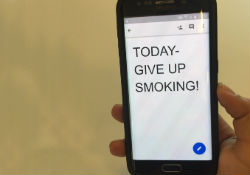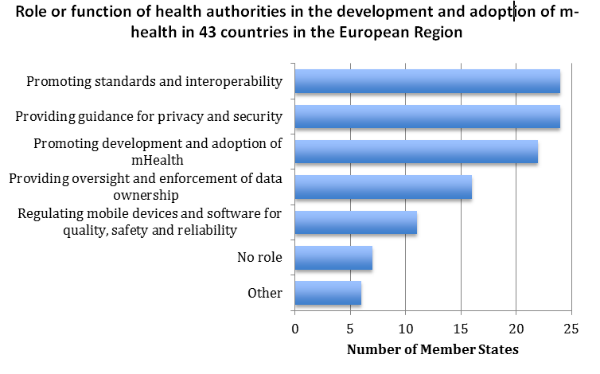Can a mobile phone help you stop smoking?

WHO
Tara Duthie, who lives in the city of Stirling in Scotland, United Kingdom, tried to quit smoking four times in 5 years. Then, on 30 October 2015, aged just 49, she had a heart attack – it was a wake-up call she could not ignore.
"Before that, I had never realized just how significant smoking is in terms of messing up your health," she explains. "After the cardiac arrest, they put me in a medically induced coma for 3 days. Once I came round, one of the nurses on the ward showed me an app that she had used to stop smoking."
The smart phone app already had encouraging news for Tara: "It told me all the little milestones I had passed in just the 3 days I had been in the coma and hadn't been smoking. I had done the first 3 days without knowing it. It was amazing that the nicotine had already left my system, my carbon monoxide level was down to nothing - so I just carried on with that."
Practical help
The app also helps in a practical way, as well as giving encouragement: "It had little games you could play, so when you were craving a cigarette you could distract yourself. Sometimes, you just need something to do with your hands that lasts about 3 minutes."
Smart phone apps that help with lifestyle change are growing in popularity. However, few public health authorities have mechanisms in place to regulate their quality or have a strategy to guide how they could be used for health promotion.
An opportunity for the European Region
According to the latest e-health report, "From innovation to implementation – e-health in the WHO European Region", the health authorities of around half the countries in the Region promote the development and adoption of m-health (mobile health) in the health sector (51%, or 22 countries). Around one fourth of countries (26%, or 11 countries) report that their health authorities regulate mobile devices and software for quality, safety and reliability. Seven Member States (16%) report that health authorities play no role in the development or adoption of m-health. The report further shows that, when governments sponsor m-health programmes, they are also more likely to provide incentives and guidance on innovation and evaluation, as well as regulation for their use.
According to Clayton Hamilton, head of the WHO/Europe e-Health and Innovation Unit, "Tara's story is very encouraging and offers a great example of how an app can be used. I hope one day that smoking cessation apps that are culturally specific to each of our Member States will be produced in all the languages of the Region. An app that also collected information from users about their state of mind and health would help advance understanding of the experience of giving up smoking. This could in turn help improve the support provided."
Gaining back 31 days of life
Tara also used nicotine replacement patches, which were prescribed first by the hospital and then through a community pharmacy, but she was able to stop smoking 6 weeks through the 12-week course. She is convinced that the free app she used on her phone made all the difference in those crucial first 3 months. Her advice to smokers who want to quit is: "Take all the help that's offered, and do everything you can to stop. Don't kid yourself that just having one will be OK, because it won't be."
It's been 207 days since Tara gave up smoking. In that time, she has not smoked the 4145 cigarettes that she would otherwise have smoked, saving her £ 1347.32 (almost US$ 2000). Because each cigarette is estimated to shorten a smoker's life by 11 minutes, she has gained back 31 days of life.
As Tara's heart is still recovering, she can't yet experience all the fitness benefits, but she nonetheless says, "I do feel fitter, I taste my food more, and breathing is easier.
I have discovered a love for gardening, and I'm ploughing all the money I'm saving on cigarettes into my garden."

WHO



